Pennsylvania may not start its 2023-24 fiscal year with an on-time budget, but if there’s a delay, it will likely be fairly short, local legislators told business leaders Thursday morning.
“I don’t foresee a prolonged impasse,” state Sen. Ryan Aument said.
Aument, a Republican, joined House Republican Leader Byan Cutler and Democratic state Reps. Mike Sturla and Ismail Smith-Wade-El at the Lancaster Chamber’s “Wake Up to the Issues” forum. Chamber President Heather Valudes moderated the session.
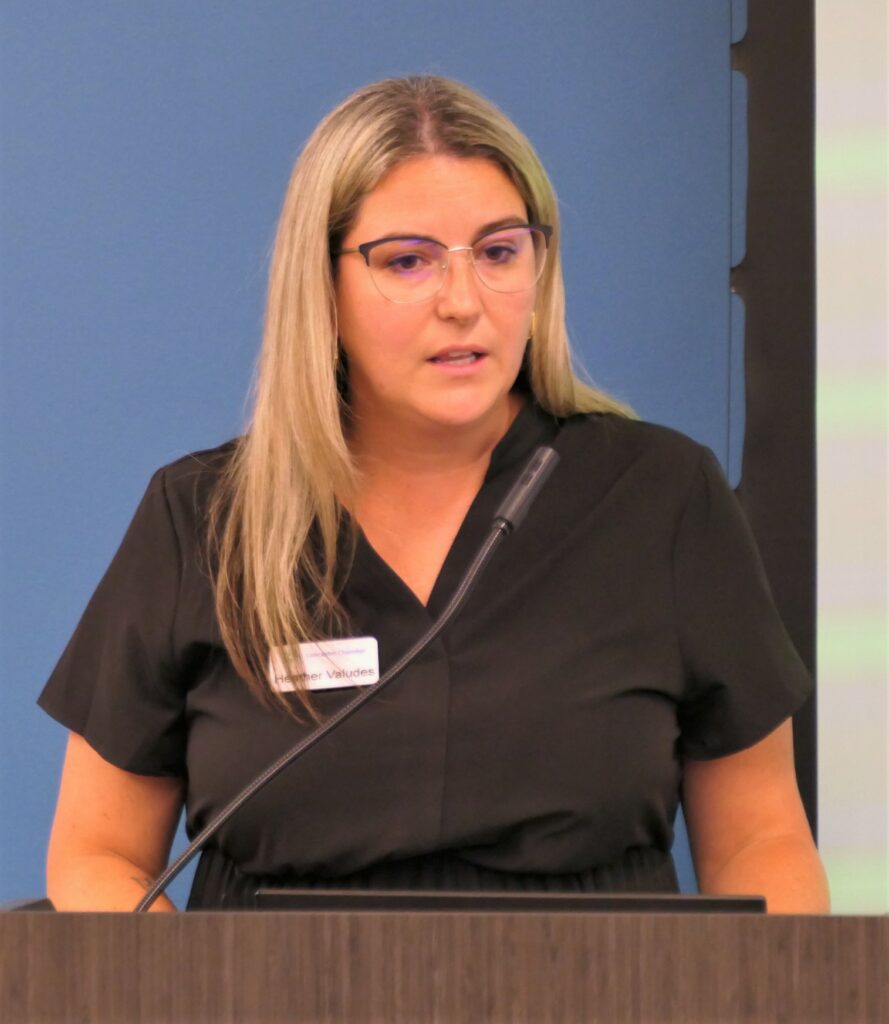
The 2023-24 budget is the first under Gov. Josh Shapiro, who succeeded fellow Democrat Gov. Tom Wolf in January. The state’s fiscal year starts July 1.
Shapiro’s budget calls for an overall increase in spending of 3.7%, to $44.4 billion. Education spending would increase by $9.6 billion; he also proposes expanding subsidized childcare, increasing food assistance and providing universal free school breakfasts.
Aument represents roughly the northern half of Lancaster County; Cutler’s district is at the county’s southern end; Smith-Wade-El and Sturla represent Lancaster city and areas nearby.
State Sen. Scott Martin, a Republican representing southern and eastern Lancaster County and a sliver of Berks County, chairs the Senate Appropriations Committee. He was scheduled to attend the forum but was called away to a budget meeting at the last minute.
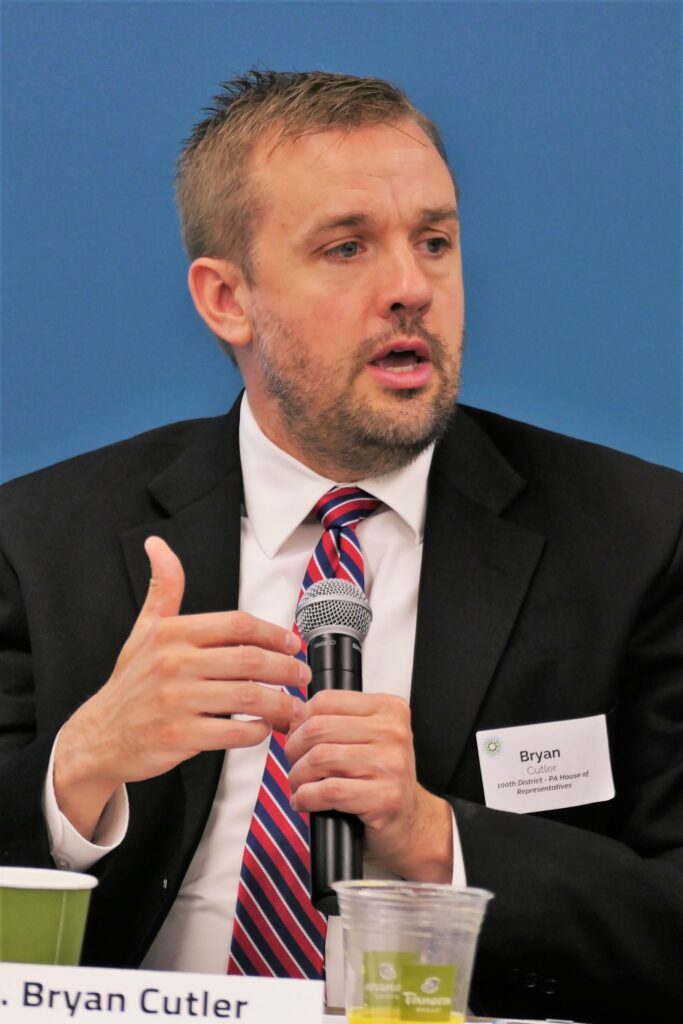
Cutler said he’s “a little worried” about the budget timeline, given the logicstics involved in shepherding multiple bills to the finish line, but gave no indication he expects any intractable disagreements.
Earlier this month, House Democrats passed a bill that would spend even more on education: another $900 million. Democrats have a one-seat House majority, 102-101; Republicans control the Senate.
Aument said that as far as his caucus is concerned, the House bill is a non-starter: Republicans view Shapiro’s budget total “as the ceiling, not the floor.” Cutler agreed, crediting Wolf with leaving Pennsylvania a healthy Rainy Day fund and saying Republicans are focused on remaining fiscally responsible.
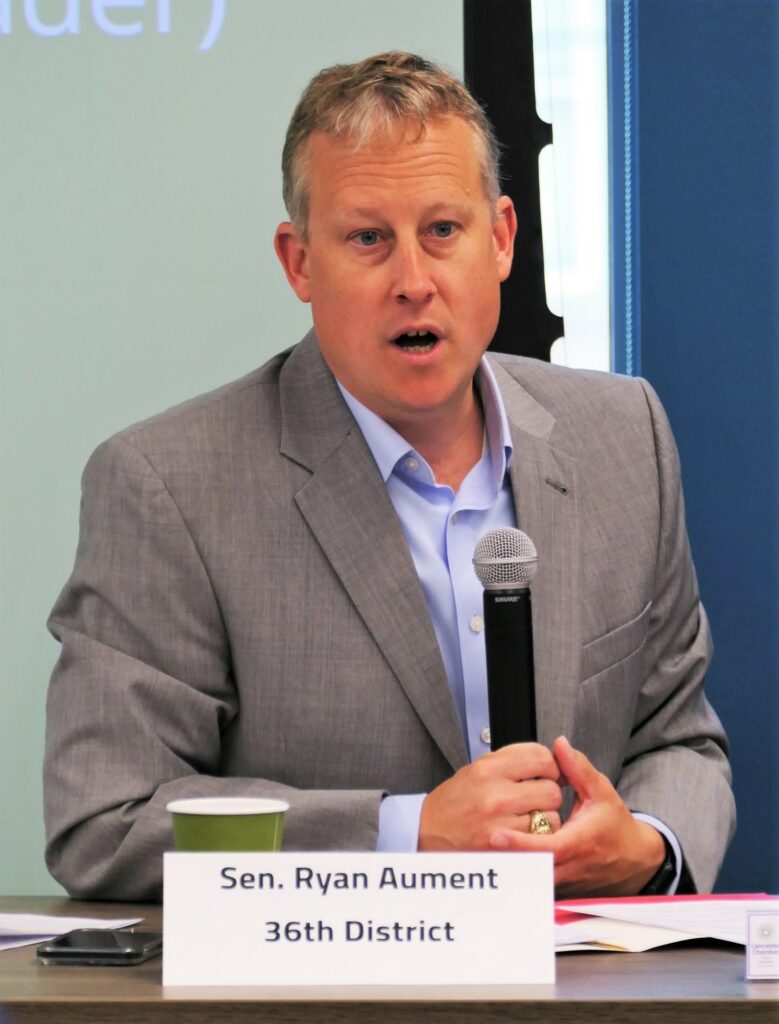
Still, he and Aument said, Republicans and Democrats share many of the same goals for Pennsylvania, even if they disagree on spending levels or other mechanisms for achieving them. Among them: Expanding childcare, addressing Pennsylvania’s acute teacher shortage and building pathways to family-sustaining jobs.
Many lucrative careers don’t require a four-year degree, and students should be encouraged to pursue them, the two said. Encouraging apprenticeships, internships and so on allow students to earn while they learn, allowing them to build skills with little or no debt.
Aument said he was glad to see the House Education Committee advance legislation to provide stipends to teachers during their internships. Smith-Wade-El agreed, saying it’s essential to build teacher pipelines for districts like the School District of Lancaster and for students to see teaching as a potential career.
Aument is co-chair of a new bipartisan commission formed to study Pennsylvania’s education system and propose changes. The goal is to build a system in tune with 21st century needs and everything is in play, he said.
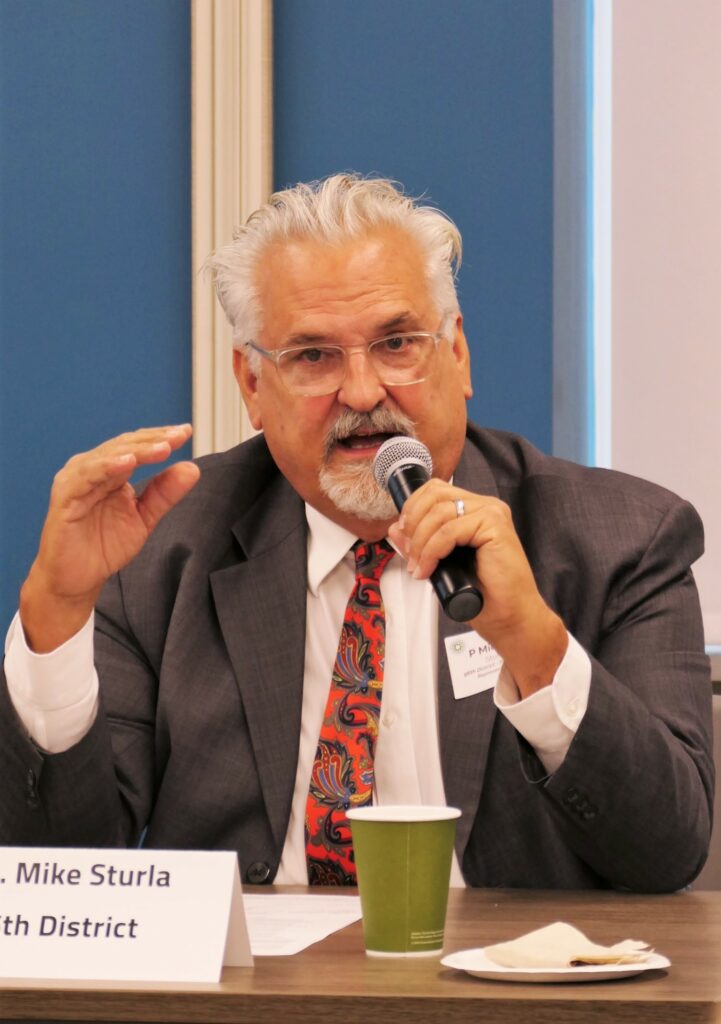
Sturla, meanwhile, is co-chair of the bipartisan Basic Education Funding Commission, tasked developing a new formula for distributing funding school districts.
Incremental increases in state education funding are no longer an option, Sturla said: In February, the state Commonwealth Court ruled in favor of the plaintiffs in the fair funding lawsuit, and that means Pennsylvania has no choice but to dramatically expand its support.
He estimated education funding will need to be increased over the next several years to a level about $8 billion higher than it is now. Because the court decision is only a few months old, legislators can get by without a fully-fledged reform plan this year, he said, but “if we don’t have a plan by next year, we’re in trouble. … There’s a gun to our head, and it’s loaded.”
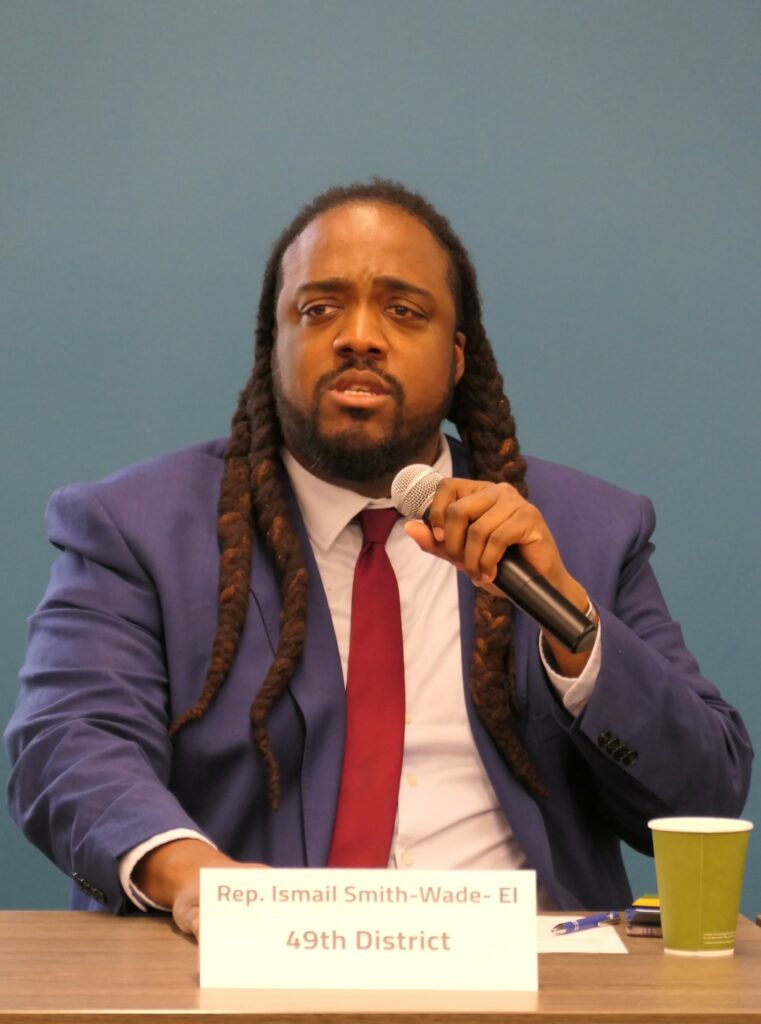
The state also has to take action on housing, he and Smith-Wade-El said.
Smith-Wade-El is pushing for $200 million in recurring funding for the Whole Home Repair program and for more funding for the Pennsylvania Housing Affordability and Rehabilitation Enhancement, or PHARE, initiative, which supports affordable housing projects.
Sturla said that unless housing is addressed, Lancaster County businesses will face an uphill battle to hire workers, because they won’t be able to find anywhere to live at reasonable cost. Pennsylvania, he said, has a shortage of nearly 500,000 housing units, primarily east of the Alleghenies: 266,000 at the affordable end of the market, plus another 200,000 in the middle of the market and above.
Investing now, he said, can get the region and state over the hump and bring supply more in line with demand. Otherwise, he warned, the area could be looking at a quarter-century of elevated housing costs and the recruitment challenges they engender.
In response to an audience question, Sturla agreed that exclusionary zoning and lengthy permitting processes drive up costs, but said that those are local issues ad there is no political will to pre-empt local zoning. Cutler and Aument said the Shapiro administration has indicated a willingness to look at streamlining environmental permitting, which would help somewhat.
The Lancaster Chamber is calling for the 2023-24 state budget to accelerate planned cuts in the corporate net income tax, to reach 4.99% in 2026 rather than 2031 — an idea for which Shapiro expressed support during his campaign.
It also supports a “targeted approach” to increasing education funding, rather than a general-purpose increase; more support for economic development; and a shift to two-year budgeting.
2015 budget stalemate hit nonprofits hard
Gov. Tom Wolf’s first budget has the distinction of leading to the longest impasse in Pennsylvania history.
Wolf entered office determined to reverse the education cuts of his predecessor, Gov. Tom Corbett. He faced intense opposition from Republican majorities in both houses. The resulting battle lasted nine months, until Easter. The final budget became law without Wolf’s signature; he merely let the deadline elapse without vetoing it.
School districts struggled. The School District of Philadelphia borrowed $275 million to meet expenses; other districts borrowed tens of millions more. Counties delayed payments to vendors and several took out loans.
The impasse had major consequences for the many nonprofits that contract with the state and counties to provide social services and are paid in state dollars.
According to a survey at the time by the Pennsylvania Association of Nonprofit Organizations, $80 million in payments to nonprofits were delayed or never received. Nonprofits reduced hours and furloughed or laid off staff, reduced services and drew down reserves or borrowed money to stay afloat.






